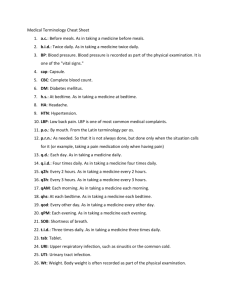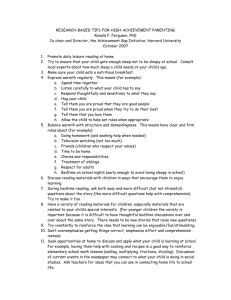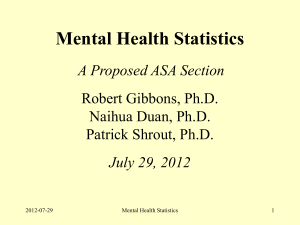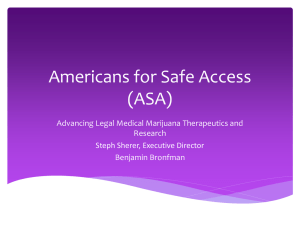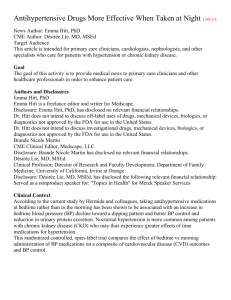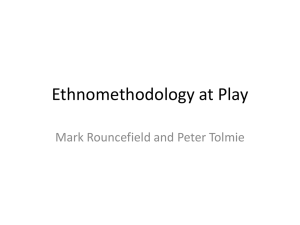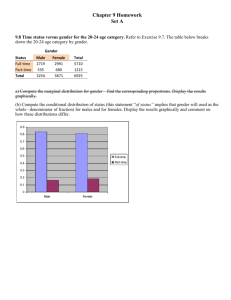effects on ambulatory blood pressure of adding
advertisement
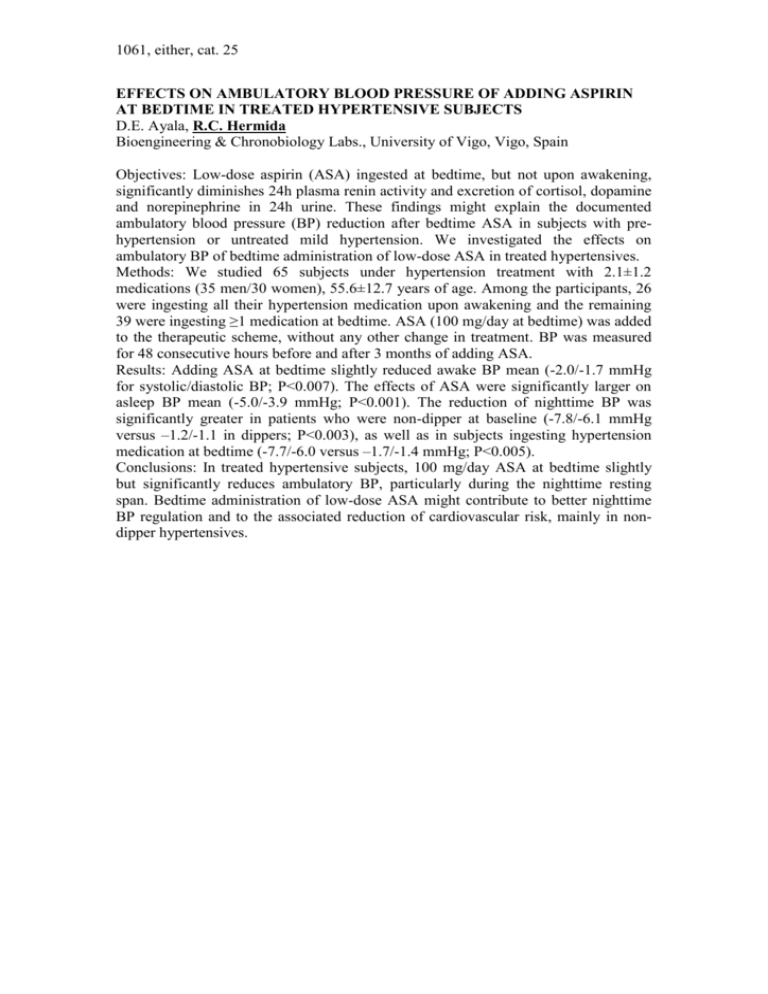
1061, either, cat. 25 EFFECTS ON AMBULATORY BLOOD PRESSURE OF ADDING ASPIRIN AT BEDTIME IN TREATED HYPERTENSIVE SUBJECTS D.E. Ayala, R.C. Hermida Bioengineering & Chronobiology Labs., University of Vigo, Vigo, Spain Objectives: Low-dose aspirin (ASA) ingested at bedtime, but not upon awakening, significantly diminishes 24h plasma renin activity and excretion of cortisol, dopamine and norepinephrine in 24h urine. These findings might explain the documented ambulatory blood pressure (BP) reduction after bedtime ASA in subjects with prehypertension or untreated mild hypertension. We investigated the effects on ambulatory BP of bedtime administration of low-dose ASA in treated hypertensives. Methods: We studied 65 subjects under hypertension treatment with 2.1±1.2 medications (35 men/30 women), 55.6±12.7 years of age. Among the participants, 26 were ingesting all their hypertension medication upon awakening and the remaining 39 were ingesting ≥1 medication at bedtime. ASA (100 mg/day at bedtime) was added to the therapeutic scheme, without any other change in treatment. BP was measured for 48 consecutive hours before and after 3 months of adding ASA. Results: Adding ASA at bedtime slightly reduced awake BP mean (-2.0/-1.7 mmHg for systolic/diastolic BP; P<0.007). The effects of ASA were significantly larger on asleep BP mean (-5.0/-3.9 mmHg; P<0.001). The reduction of nighttime BP was significantly greater in patients who were non-dipper at baseline (-7.8/-6.1 mmHg versus –1.2/-1.1 in dippers; P<0.003), as well as in subjects ingesting hypertension medication at bedtime (-7.7/-6.0 versus –1.7/-1.4 mmHg; P<0.005). Conclusions: In treated hypertensive subjects, 100 mg/day ASA at bedtime slightly but significantly reduces ambulatory BP, particularly during the nighttime resting span. Bedtime administration of low-dose ASA might contribute to better nighttime BP regulation and to the associated reduction of cardiovascular risk, mainly in nondipper hypertensives.
